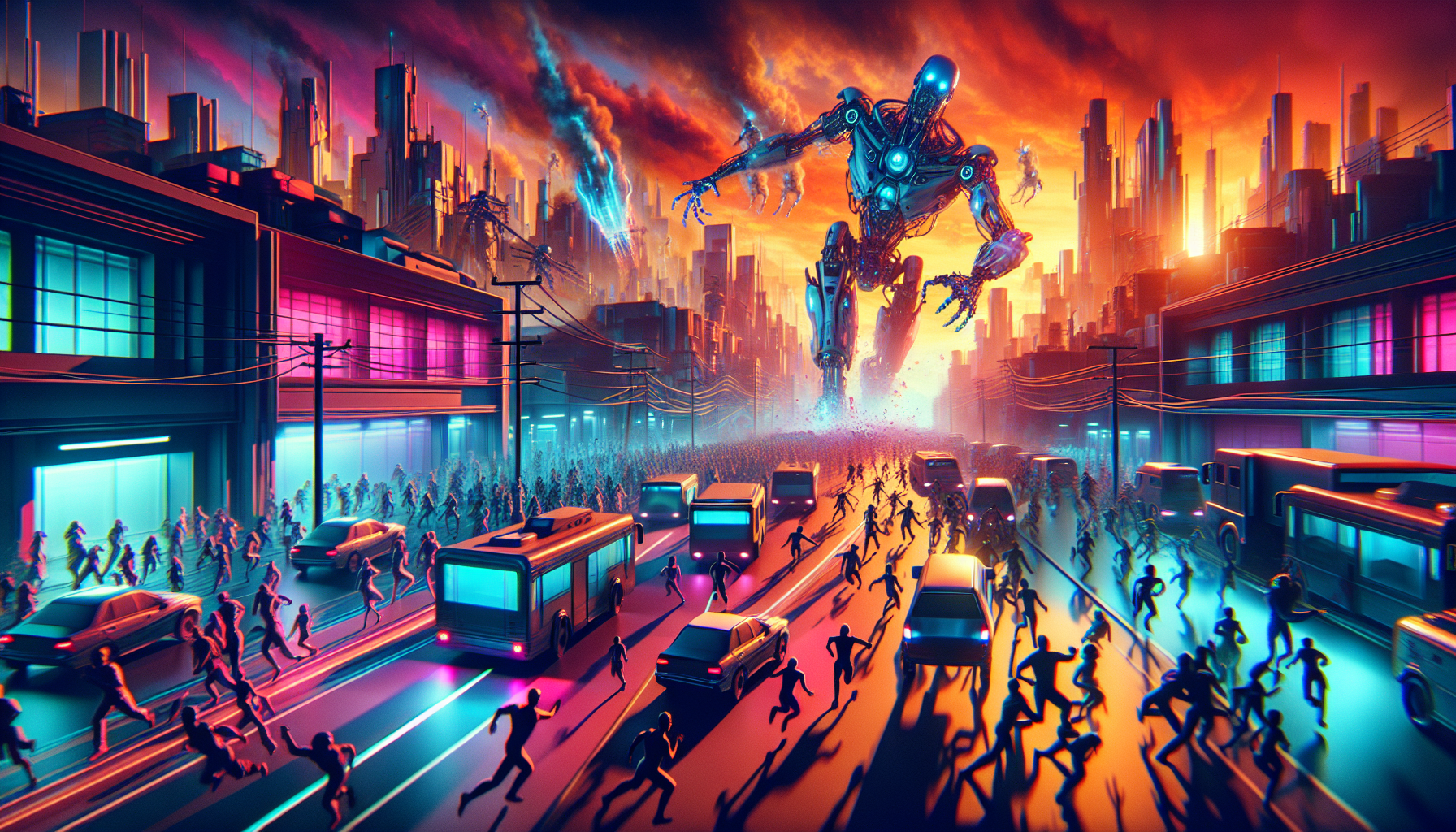Ads
Artificial Intelligence (AI) is one of the most revolutionary technologies of our time, with the potential to transform entire industries and improve people's lives in many ways. However, as AI advances by leaps and bounds, concerns also arise about the potential risks and dangers it could bring.
In this article, we'll explore in detail the dangers of uncontrolled Artificial Intelligence and the risks it poses to humanity. From job losses due to automation to the possibility of algorithms making erroneous decisions with serious consequences, it's critical to be aware of the potential dangers that uncontrolled AI could pose.
Ads
Through concrete examples and real-life cases, we will expose the risks that unsupervised Artificial Intelligence could pose to society. We will analyze how the lack of regulation and ethics in AI development could lead to unintended and potentially devastating consequences for humanity as a whole.
It is crucial that we recognize the dangers that uncontrolled AI could bring and take steps to mitigate these risks. From implementing regulatory frameworks to promoting ethical and responsible AI, it is everyone's responsibility to ensure that AI develops safely and benefits society.
Ads
In the following sections, we'll delve into the different aspects of the risks of runaway AI and explore possible solutions and preventative measures to ensure that AI remains a tool for human well-being, rather than a potential threat to our existence. Join us on this journey toward a deeper understanding of the dangers of runaway AI!
The dangers of uncontrolled artificial intelligence
Artificial Intelligence (AI) is a fascinating technology that has revolutionized many aspects of our daily lives. However, it also carries a number of risks and dangers if not used responsibly and ethically. In this article, we'll uncover the risks of uncontrolled AI and explore how they can affect humanity.
1. Risk of bias and discrimination
One of the main dangers of uncontrolled AI is the risk of bias and discrimination. AI algorithms can learn from historical data sets that reflect bias and discrimination, which can lead to unfair and harmful decisions for certain groups of people. It is crucial that AI developers are aware of this risk and actively work to mitigate it.
“One of the main dangers of uncontrolled AI is the risk of bias and discrimination. AI algorithms can learn from historical data sets that reflect bias and discrimination, which can lead to unfair and harmful decisions for certain groups of people. It is crucial that AI developers are aware of this risk and actively work to mitigate it.
Additionally, it is essential to incorporate quality controls into data and algorithms, ensuring diverse and up-to-date sources, which minimizes bias and encourages fair and equitable decisions in automated systems.”
2. Lack of transparency and accountability
Another danger of uncontrolled AI is the lack of transparency and accountability. As AI becomes more complex and autonomous, it can become difficult for humans to understand how it makes decisions and why. This can lead to situations where AI acts unexpectedly or inappropriately, with no clear way to hold those responsible accountable.
3. Threat to privacy and security
Uncontrolled AI also poses a threat to people's privacy and security. AI algorithms can collect vast amounts of personal data without individuals' consent, which can lead to privacy breaches and misuse of information. Furthermore, if AI is hacked or manipulated, it can pose a serious threat to the security of individuals and organizations.

Conclusion
In conclusion, it is clear that the risks of uncontrolled Artificial Intelligence are significant and can have serious consequences for humanity. From the risk of bias and discrimination to the lack of transparency and accountability, as well as the threat to privacy and security, it is essential to address these issues proactively and ethically.
It is imperative that AI developers be aware of these risks and work to mitigate them, ensuring that the technology is used responsibly and for the benefit of all. Transparency in the development of algorithms, as well as accountability for the decisions made by AI, are crucial to ensuring that the technology is used ethically and in line with fundamental human values.
Ultimately, we must continue to explore and debate these critical issues for our future. Only through a responsible and transparent approach can we harness the full positive potential of AI while mitigating its dangers to humanity. Let's hope these risks are effectively addressed to ensure a safe and ethical future for all! 🤖🌍
To adequately control these risks, it is essential that both governments and international organizations develop specific regulatory frameworks to guide the design and implementation of artificial intelligence systems. These frameworks must include clear ethical principles, transparency protocols for algorithm development, and accountability mechanisms that allow for identifying and correcting deviations in AI behavior. Furthermore, close collaboration between the scientific and technological communities and experts in ethics and human rights is essential to defining global standards that ensure the responsible use of this technology.
Furthermore, it is crucial to invest in the education and training of professionals involved in AI development, so that they understand not only the technical aspects but also the ethical implications of their creations. The inclusion of diverse perspectives and the active participation of civil society will strengthen the debate and facilitate the building of consensus on best practices. At the same time, promoting research into interpretability and transparency techniques in algorithms will help detect and correct biases or errors that may affect vulnerable groups.
Only through a comprehensive and collaborative approach can we harness the enormous potential of artificial intelligence, ensuring that its applications are safe, ethical, and beneficial to all of humanity.
